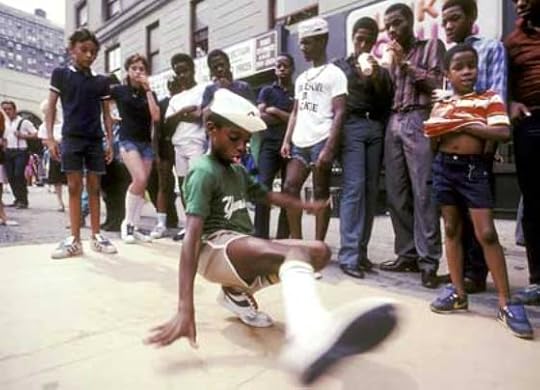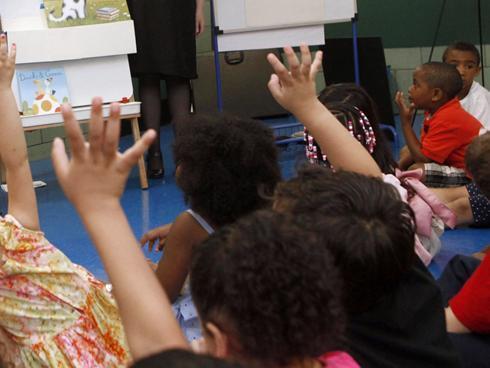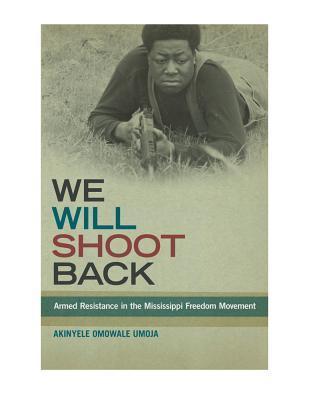Mark Anthony Neal's Blog, page 902
April 23, 2013
The Hip-Hop Manifesto by Adia “Dr. Dia” Winfrey, Psy.D.

The Hip-Hop Manifesto by Adia “Dr. Dia” Winfrey, Psy.D. | special to NewBlackMan
For months, our timelines, statuses, and inboxes have been overflowing with responses, opinions, and petitions related to Hip Hop Culture. Every week there seems to be a new story resulting in outrage or support for a particular artist. To add to this, we are watching events unfold nationally that have us at our wit’s end. Like many of you, I too am questioning what is going on socially, culturally, and politically. And similar to a family affected by alcoholism that ignores the addiction and focuses on “the problem child,” members of Hip Hop Culture are overlooking the big picture.
Lately we’ve put pressure on major corporations and have seen results. Now what? We raised our voices until the President of the United States made a speech about gun violence in Chicago. Okay. The scholars debated and weighed in. Facebook and Twitter were on fire. But where do we go from here? Many outside the Culture recognize Hip Hop’s positive attributes. But how do we view ourselves? We are what Hip Hop looks like when it’s grown for real, and now it’s time for us to realize our full potential.
The seventh principle of the Hip Hop Declaration of Peace, accepted by the United Nations May 16, 2001, states:
The elements of Hiphop Kulture may be traded for money, honor, power, respect, food, shelter, information, and other resources; however, Hiphop and its culture cannot be bought, nor is it for sale. It cannot be transferred or exchanged by or to anyone for any compensation at any time or at any place. Hiphop is the priceless principle of our self-empowerment. Hiphop is not a product.
We must let go of the weightless clichés limiting our progression. “Hip Hop” is not an exclusionary label, and rap will always be part of Hip Hop Culture. Women have been a constant presence in the Culture since its inception. From the outset, adults have never understood the Street Fashion element of Hip Hop. Southern artists have shaped the Culture for decades. And rap music has always included a wide array of subjects from the entertaining to the enlightening. Too often we are focusing our “debates” around what’s missing or different with Hip Hop. Our dialogue is sounding more and more like those who are outside of the Culture. Enough is enough. It’s time to shift our focal point to what’s right.
Hip Hop, as we know it, evolved into existence as the result of young people finding their voices. It is critical we remember our power has been present since the beginning. Hip Hop Culture was created by us and we still call the shots. It is time to reclaim our voices and elevate our impact within the Culture.
As members of Hip Hop Culture we must be proactive, and not reactionary. According to the ninth principle of the Hip Hop Declaration of Peace, May 3rd is Rap Music Day, the 3rdweek of May is Hip Hop Appreciation Week, and November is Hip Hop History Month. At these times, let us celebrate with intention, while working on behalf of our Culture teaching lessons that will propel Hip Hop forward. Whether it was in the 70s, 80s, 90s, or 00s, let us remember why we fell in love with Hip Hop.
We must trade alibis and judgment for authenticity and purpose so our greatest impact can be realized. Now is the time!
***
Adia “Dr. Dia” Winfrey, Psy.D, is the author of H.Y.P.E.: Healing Young People thru Empowerment (African-American Images, 2009) and has been featured on NPR, in JET Magazine, and endorsed by syndicated radio personalities Tom Joyner and Michael Baisden. Learn more at letsgethype.com.
Published on April 23, 2013 06:49
HuffPost Live: Celebrating the Legacy of Luther Vandross
This past Saturday marked what would have been the 62nd birthday of American R&B and soul singer-songwriter, the late Luther Vandross. We celebrate the life and legacy of the eight-time Grammy award winning artist.Originally aired on April 22, 2013Hosted by: Marc Lamont HillGuests:Irene Cara @Irene_Cara (FL) Actress & Oscar-Winning Singer/Songwriter ; Starred in 'Fame'Valerie Simpson @ivaleriesimpson (Washington, DC) Legendary Singer & SongwriterMarcus Miller (Los Angeles, CA) Grammy-Winning Composer/ProducerMark Anthony Neal @NewBlackMan (Durham, NC) Professor of Black Popular Culture at Duke UniversityCraig Seymour @craigspoplife (Chicago, IL) Author of 'Luther: The Life and Longing of Luther Vandross'Kim Beasley @kimbeasley (Kansas City, MO) Social Media Strategist; Luther Vandross FanTash Jefferies @tashjefferies (Toronto, Canada) Stress Management Expert ; Luther Vandross FanFonzi Thorton Friend and Collaborator of Luther Vandross
Published on April 23, 2013 06:29
April 22, 2013
Has The War on Teachers Morphed Into a War on Children? by Mark Naison

Has The War on Teachers Morphed Into a War on Children? by Mark Naison | special to NewBlackMan (in Exile)
When I first got involved in education activism four years ago, with the publication of a piece "In Defense of Public School Teachers" I did so because the elected officials in New York and around the nation, under the mantle of "school reform," were blaming public school teachers for problems in the society that were not of their making; These officials were trying to subject teachers to numbers based "accountability" protocols that would squeeze the life out of teaching. I saw the best teachers I knew, those who were my former students, and those I worked with in Bronx community history projects, feel as though they had become demonized and marginalized by people who had little real life understanding of what their job entailed. Since they lacked the power to speak freely about what was happening to them, I felt it was my duty to speak in their behalf.
Four years later, there is still just as much pain and rage among the nation's teachers. Now that I am publicly identified as a "teachers advocate' I probably get 4 or 5 emails or Facebook messages a week from teachers around the nation describing the fear, stress, humiliation and erosion of professional autonomy they experience as student test scores have become the major indicator of judging teacher effectiveness. It is because of such experiences that I have launched, with the support of United Opt Out, a Teachers Oral History Project that will allow teachers viewpoints on current education policies to be recorded and preserved.
But this past week, as I have become involved with an Opt Out movement in New York State that has inspired thousands of families to demand that their children be allowed to sit out state tests, I have become even more appalled by what current school policies are doing to children. The stories I have heard from parents about their children's school experiences have been even more heartbreaking than those I hear from teachers. The flood of high stakes tests into the schools of New York State has not only turned instruction into test prep, making once eager youngsters hate going to school. it has produced anxiety attacks and stress related disorders on a massive scale among students as young as 8 in schools around the state.
And these stories are not confined to one demographic group. I have gotten them parents in small towns inner cities, middle class urban neighborhoods and in suburbs. Children are traumatized by the length of the tests, by steadily growing difficulty of the material they contain and by the fact that their teachers jobs depend on how well they perform.
And God forbid a student or a family should decide not to take the test! In more than few school districts, children who have chosen to opt out have been have been browbeaten, insulted, threatened with loss of extracurricular activities and access to honors programs, told they will never get into college, told they are jeopardizing their teachers jobs, told they will be responsible for lowering real estate values in their neighborhood, even in a few instances, told they are unpatriotic and giving aid and comfort to terrorists!
Given what I have seen and heard this week from the parents of New York State, I respectfully suggest that we, as a nation, need a long period of soul searching to examine whether the test driven policies that are being imposed in the public schools of the nation with breakneck speed are good for children. The two weeks of testing that the children of New York State are currently enduring comes perilously close reaching abusive proportions. A society that loves and values its children would not accept this as the norm.
***
Mark Naison is a Professor of African-American Studies and History at Fordham University and Director of Fordham’s Urban Studies Program. He is the author of two books, Communists in Harlem During the Depression and White Boy: A Memoir. Naison is also co-director of the Bronx African American History Project (BAAHP). Research from the BAAHP will be published in a forthcoming collection of oral histories Before the Fires: An Oral History of African American Life From the 1930’s to the 1960’s.
Published on April 22, 2013 15:16
Coffee Talk: Janelle Monáe on Being Committed to Innovation
Essence Magazine
Janelle Monáe on being committed to innovation.
Published on April 22, 2013 09:39
Proving Innocence: Convicts Exonerated with Help from Duke Law Wrongful Convictions Clinic
Duke Law School
LaMonte Armstrong served 17 years in prison for a murder he did not commit. He was exonerated with the help of students, faculty, and alumni in Duke Law School's Wrongful Convictions Clinic.
Published on April 22, 2013 09:32
April 21, 2013
New Book—'We Will Shoot Back: Armed Resistance in the Mississippi Freedom Movement' by Akinyele Omowale Umoja

We Will Shoot Back: Armed Resistance inthe Mississippi Freedom Movement by Akinyele Omowale Umoja
New York University PressApril 22, 2013
The notion that the civil rights movement in the southern United States was a nonviolent movement remains a dominant theme of civil rights memory and representation in popular culture. Yet in dozens of southern communities, Black people picked up arms to defend their leaders, communities, and lives. In particular, Black people relied on armed self-defense in communities where federal government officials failed to safeguard activists and supporters from the violence of racists and segregationists, who were often supported by local law enforcement.
In We Will Shoot Back: Armed Resistance in the Mississippi Freedom Movement, Akinyele Omowale Umoja argues that armed resistance was critical to the efficacy of the southern freedom struggle and the dismantling of segregation and Black disenfranchisement. Intimidation and fear were central to the system of oppression in Mississippi and most of the Deep South. To overcome the system of segregation, Black people had to overcome fear to present a significant challenge to White domination. Armed self-defense was a major tool of survival in allowing some Black southern communities to maintain their integrity and existence in the face of White supremacist terror. By 1965, armed resistance, particularly self-defense, was a significant factor in the challenge of the descendants of enslaved Africans to overturning fear and intimidation and developing different political and social relationships between Black and White Mississippians.
This riveting historical narrative relies upon oral history, archival material, and scholarly literature to reconstruct the use of armed resistance by Black activists and supporters in Mississippi to challenge racist terrorism, segregation, and fight for human rights and political empowerment from the early 1950s through the late 1970s.
Reviews
"Akinyele Umoja’s marvelously rich and exhaustive study of Mississippi will radically transform the debate about the role of nonviolence within the civil rights movement, proving that armed self-defense actually saved lives, reduced terrorist attacks on African American communities, and laid the foundation for unparalleled community solidarity. We Will Shoot Back is decidedly not a romantic celebration of gun culture, but a sometimes sobering, sometimes beautiful story of self-reliance and self-determination and a people’s capacity to sustain a movement against all odds."—Robin D. G. Kelley, author of Freedom Dreams: The Black Radical Imagination
"Ranging from Reconstruction to the Black Power period, this thoroughly and creatively researched book effectively challenges long-held beliefs about the Black Freedom Struggle. It should make it abundantly clear that the violence/nonviolence dichotomy is too simple to capture the thinking of Black Southerners about the forms of effective resistance."—Charles M. Payne, Frank P. Hixon Distinguished Service Professor, University of Chicago
"Timely and timeless. . . . Expands our understanding of the hidden narratives of Mississippi's black armed resistance groups scattered through generations."—Kathleen Cleaver, Senior Lecturer and Research Fellow, Emory Law School
About the Author
Akinyele Omowale Umoja is an educator and scholar-activist. He is an associate professor and chair of the department of African-American studies at Georgia State University, where he teaches courses on the history of the civil rights and Black Power movements and other social movements. He has been a community activist for over 40 years.
Published on April 21, 2013 18:23
China in Rescue Effort After Deadly Quake
Al Jazeera English
More than 160 people are dead following a magnitude 6.6 earthquake in southwestern China. It struck Sichuan province early on Saturday morning. Thousands of troops have been sent to the area to help the rescue effort.
Al Jazeera's Mereana Hond reports.
Published on April 21, 2013 11:46
MHP Show: Being Muslim in Post 9/11 America
with Zaheer Ali, Valerie Kaur and Michael Eric Dyson
Published on April 21, 2013 11:37
April 19, 2013
Promo: Queer Sounds & Eccentric Acts in the Post-Soul Era on the April 22nd 'Left of Black' w/ Professor Francesca Royster
DePaul University Professor Francesa Royster joins host Mark Anthony Neal on the Monday, April 22nd episode of Left of Black. Royster is the author of the new book Sounding Like a No-No: Queer Sounds and Eccentric Acts in the Post-Soul Era (University of Michigan Press).
The stream url for Monday's Left of Black is:http://www.youtube.com/watch?v=Z11tMpXq55A
Published on April 19, 2013 15:08
Why Police and Black Community Relationships Don't Work
Rap Sessions with Bakari Kitwana
Toward meaningful dialogue between the police and the Black community. Here is a clip of our discussion last week in Dayton, OH with Jasiri Xtra, MC Lyte, Dr. Dana Murray Patterson and Dayton community activist Derrick Malone on the role hip-hop can play in reducing gun violence. Thanks again to Dayton Police Chief Richard Biehl for joining this important discussion.
Published on April 19, 2013 10:22
Mark Anthony Neal's Blog
- Mark Anthony Neal's profile
- 30 followers
Mark Anthony Neal isn't a Goodreads Author
(yet),
but they
do have a blog,
so here are some recent posts imported from
their feed.



